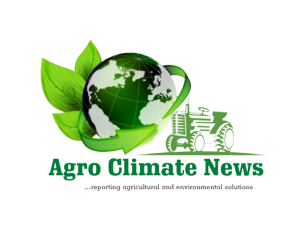Despite global commitments to tackle methane emissions, most governments are failing to deliver strong strategies for the waste sector, according to new analysis by the Global Alliance for Incinerator Alternatives (GAIA).
GAIA reviewed 14 updated Nationally Determined Contributions (NDCs) submitted to the UN Framework Convention on Climate Change (UNFCCC) by countries that had signed the Global Methane Pledge and the Declaration on Reducing Methane from Organic Waste.
READ ALSO: NNPC, TotalEnergies sign MoU on adoption of methane detection technology
Read Also: COP30: Group seeks urgent action as world crosses first climate tipping point
The findings reveal that while four countries showed progress, ten submitted plans deemed weak or even counterproductive.
“No country fully captured the potential emissions savings and social benefits of an effective zero waste strategy,” GAIA said.
Brazil stood out for significant improvements in policy framing and concrete measures to manage organic waste, while Bangladesh, Chile, Colombia and Nigeria emphasized a just transition, referencing job retraining, skill development, and inclusion of informal workers.
However, GAIA noted that most countries failed to integrate waste pickers—key players in effective waste management—and several nations, including Nepal, Uruguay, Colombia, Morocco and Bangladesh, are planning to expand waste-to-energy projects. These projects, the group warned, emit carbon dioxide, undermine recycling efforts, and threaten livelihoods.
“Too many plans focus on waste disposal rather than prevention or material recovery, often favoring private profits over people,” said Doun Moon, GAIA’s Policy and Research Officer. “Community-led zero waste initiatives are one of the fastest, cheapest ways to cut methane emissions.”
Waste contributes roughly 20% of human-caused methane emissions, a potent greenhouse gas. Proven zero waste methods—such as source separation, composting, bio-stabilization, and the use of bio-covers on dumpsites—can slash these emissions by up to 95%, while creating jobs and reducing pollution.
GAIA’s analysis covered NDCs from Bangladesh, Brazil, Chile, Colombia, Ecuador, Ethiopia, Kenya, Morocco, Nepal, Nigeria, Panama, Uruguay, Zambia, and Zimbabwe, focusing on Global South countries with high potential to adopt zero waste approaches and avoid harmful incineration models.
“We urge governments to embrace zero waste as a climate solution, with waste pickers and communities at its heart,” said Mariel Vilela, GAIA’s Global Climate Program Director. “The upcoming COP30 climate conference is a moment to share success stories and get funding to those making real change on the ground.”
GAIA has also released detailed zero waste policy recommendations for Chile, Indonesia, and South Africa, outlining pathways for effective methane reduction through sustainable waste management.



